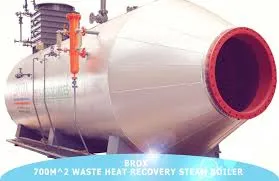thermal oil boiler for food plant manufacturer
The Importance of Thermal Oil Boilers in Food Processing Plants
In the food processing industry, maintaining precise temperature control and consistent heating is crucial for ensuring the quality and safety of products. Among various heating solutions, thermal oil boilers have gained prominence due to their efficiency and versatility. This article explores the role of thermal oil boilers in food plants, highlighting their advantages, functionality, and considerations for manufacturers seeking reliable heating solutions.
Understanding Thermal Oil Boilers
Thermal oil boilers utilize specialized thermal fluids to transfer heat efficiently. Unlike conventional steam boilers that produce steam for heating, thermal oil systems circulate heat transfer fluids at lower pressures and high temperatures. This makes them suitable for processes requiring precise temperature regulation, such as cooking, drying, and sterilization, which are pervasive in the food industry.
Benefits of Thermal Oil Boilers for Food Plants
1. High Efficiency Thermal oil boilers operate at high thermal efficiencies, often exceeding 90%. This efficiency translates into lower energy consumption, reducing operational costs for food manufacturers. The ability to maintain consistent heat without significant fluctuations is vital in processes like frying, where product quality is directly linked to temperature accuracy.
2. Versatile Temperature Control Thermal oil can operate at a wide range of temperatures, typically between 300°C to 400°C (572°F to 752°F). This versatility enables food processors to adapt to various cooking methods, from blanching vegetables to roasting meats. Precise temperature adjustments allow manufacturers to optimize their production processes based on specific product requirements.
3. Reduced Risk of Pressure Hazards Compared to steam generation, thermal oil systems operate at much lower pressures. This translates to a reduced risk of pressure-related incidents, making thermal oil boilers inherently safer for food processing environments. This is particularly important in facilities where safety regulations are stringent, as food plants often prioritize employee safety and equipment reliability.
4. Environmentally Friendly With increasing emphasis on sustainability, thermal oil boilers are often designed to minimize emissions and enhance energy efficiency. Many manufacturers incorporate technology that reduces fuel consumption and aligns with environmental standards, making these systems a responsible choice for food processing operations.
thermal oil boiler for food plant manufacturer

5. Reliability and Longevity Thermal oil systems are built to withstand extreme temperatures without degrading. This durability ensures a longer lifespan compared to traditional heating systems, ultimately reducing maintenance and replacement costs over time. A reliable heating system is crucial in food processing, where any downtime can lead to production delays and financial losses.
Considerations for Manufacturers
When selecting a thermal oil boiler for a food processing facility, several factors should be considered to ensure optimal performance and safety
1. Certification and Compliance It is essential to choose a thermal oil boiler that meets industry certifications and regulatory standards specific to food processing. Compliance with safety and hygiene regulations is critical to maintain product integrity and consumer safety.
2. Customization Options Different food processing operations have unique heating requirements. Working with manufacturers that offer customizable thermal oil boiler solutions can help meet specific operational needs, from capacity and temperature control to integration with existing systems.
3. Quality of Thermal Oils The choice of thermal fluid used in the system is crucial for performance and safety. Manufacturers should ensure that the thermal oil is food-safe and suitable for the temperatures required in their specific applications.
4. Maintenance and Support Regular maintenance is essential to keep thermal oil boilers running efficiently. Manufacturers should inquire about the support and service offerings from the boiler supplier, ensuring they have access to technical assistance whenever needed.
Conclusion
Thermal oil boilers have become an integral part of the food processing industry, offering benefits that enhance efficiency, safety, and product quality. Their versatility in temperature control, reduced risk of pressure hazards, and environmentally friendly design make them ideal for a range of applications within food plants. As manufacturers seek reliable heating solutions, investing in a high-quality thermal oil boiler can significantly impact their operational legacy, product quality, and overall competitiveness in the market. By prioritizing efficiency and safety, food manufacturers can continue to serve their customers with high-quality products while staying aligned with industry regulations and sustainability goals.
-
Top Electric Steam Boiler Manufacturers - High Efficiency SolutionsNewsJul.30,2025
-
Top Electric Steam Boiler Manufacturers – Efficient Industrial SolutionsNewsJul.29,2025
-
Top Electric Steam Boiler Manufacturers | Reliable Industrial SolutionsNewsJul.29,2025
-
OEM Steam Boiler Solutions for Custom Needs | High Efficiency & VersatilityNewsJul.29,2025
-
High-Efficiency Thermal Oil Boiler for Industrial Heating SolutionsNewsJul.29,2025
-
Top Electric Steam Boiler Manufacturers for Industrial EfficiencyNewsJul.28,2025

